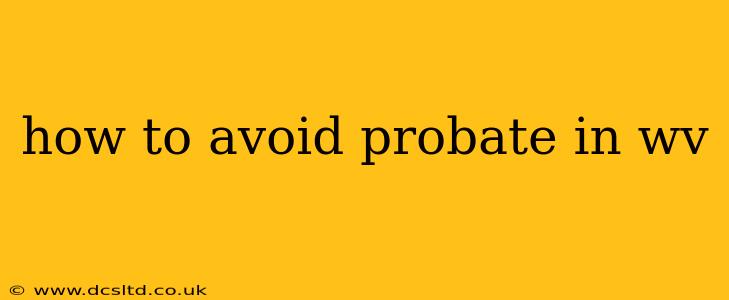Probate, the court-supervised process of distributing a deceased person's assets, can be time-consuming, expensive, and publicly accessible. Many West Virginians seek ways to avoid this process altogether. Fortunately, several strategies can help minimize or eliminate the need for probate in WV. This guide explores these options, empowering you to make informed decisions about your estate planning.
What is Probate in West Virginia?
Before diving into avoidance strategies, let's briefly clarify what probate entails in West Virginia. It's the legal procedure where a court validates a will, identifies assets, pays debts and taxes, and distributes the remaining assets to heirs according to the will or state intestacy laws (if no will exists). This process can be complex and often involves legal fees, court costs, and potentially lengthy delays.
How to Avoid Probate in West Virginia: Key Strategies
Several effective methods can help you avoid or significantly reduce the complexities of probate in West Virginia:
1. Establishing a Living Trust
A living trust, also known as a revocable trust, is a powerful tool for estate planning. You transfer ownership of your assets to the trust, which you control during your lifetime. Upon your death, the trust's trustee distributes assets to beneficiaries according to your instructions, bypassing the probate court. This method offers privacy, potentially reduces taxes, and simplifies asset distribution.
2. Utilizing Joint Ownership with Right of Survivorship
For certain assets, like bank accounts or real estate, establishing joint ownership with right of survivorship can be a simple solution. Upon the death of one owner, the asset automatically transfers to the surviving owner(s), avoiding probate. However, this method lacks the flexibility and control offered by a trust.
3. Payable on Death (POD) and Transfer on Death (TOD) Designations
Payable on Death (POD) designations for bank accounts and brokerage accounts, and Transfer on Death (TOD) designations for certain assets, allow these assets to pass directly to a designated beneficiary upon death, avoiding probate. This is a straightforward approach for specific assets but doesn't encompass your entire estate.
4. Beneficiary Designations on Retirement Accounts and Life Insurance Policies
Retirement accounts (like 401(k)s and IRAs) and life insurance policies typically allow for beneficiary designations. Naming beneficiaries ensures these assets are distributed directly to them without going through probate. This is a crucial step to streamline the distribution of these significant assets.
5. Small Estate Affidavit (Affidavit of Heirship)
West Virginia has a small estate affidavit process which allows for simplified distribution of assets without formal probate if the estate's value falls below a certain threshold. This threshold can vary, so it's crucial to consult with a West Virginia estate planning attorney to determine if your estate qualifies. This option is only suitable for smaller estates with uncomplicated assets.
6. Working with a West Virginia Estate Planning Attorney
Engaging a qualified West Virginia estate planning attorney is crucial for choosing the best strategy for your unique circumstances. They can guide you through the complexities of estate planning, considering factors like your asset size, family structure, and specific goals. They can help you determine the most effective and legally sound approach to avoid probate in WV.
Frequently Asked Questions (FAQs)
What are the benefits of avoiding probate?
Avoiding probate offers several key advantages: It saves time and money on legal fees and court costs, maintains privacy by keeping estate matters out of public records, and speeds up the distribution of assets to beneficiaries.
Is it possible to completely avoid probate in West Virginia?
While completely avoiding probate is possible through meticulous estate planning (primarily using trusts and beneficiary designations), some assets may still require probate depending on their nature and ownership structure.
What is the cost of setting up a living trust in West Virginia?
The cost of establishing a living trust varies depending on the complexity of your estate and the attorney's fees. It's advisable to obtain quotes from multiple estate planning attorneys in West Virginia to compare pricing.
How long does it take to set up a living trust?
The timeframe for establishing a living trust can range from a few weeks to several months, depending on the complexity of your estate and the attorney's availability.
Can I do this myself without an attorney?
While you can technically create some estate planning documents yourself using online templates, seeking professional legal advice from a West Virginia estate planning attorney is highly recommended. They can ensure your documents are legally sound and tailored to your specific circumstances, preventing potential future complications.
This information is for educational purposes only and does not constitute legal advice. It is essential to consult with a qualified West Virginia estate planning attorney to discuss your specific situation and create a personalized estate plan that meets your needs and complies with West Virginia law.
